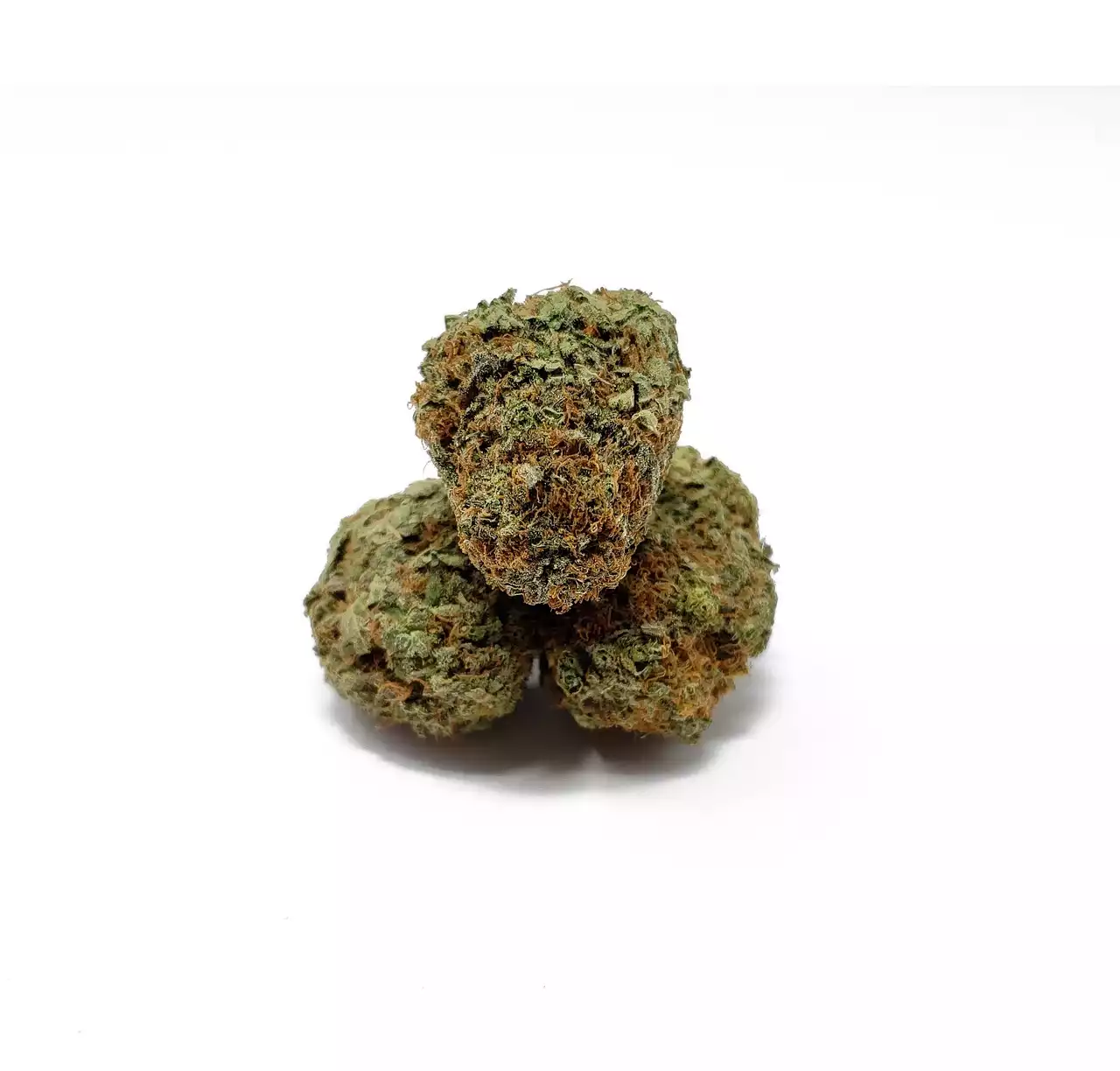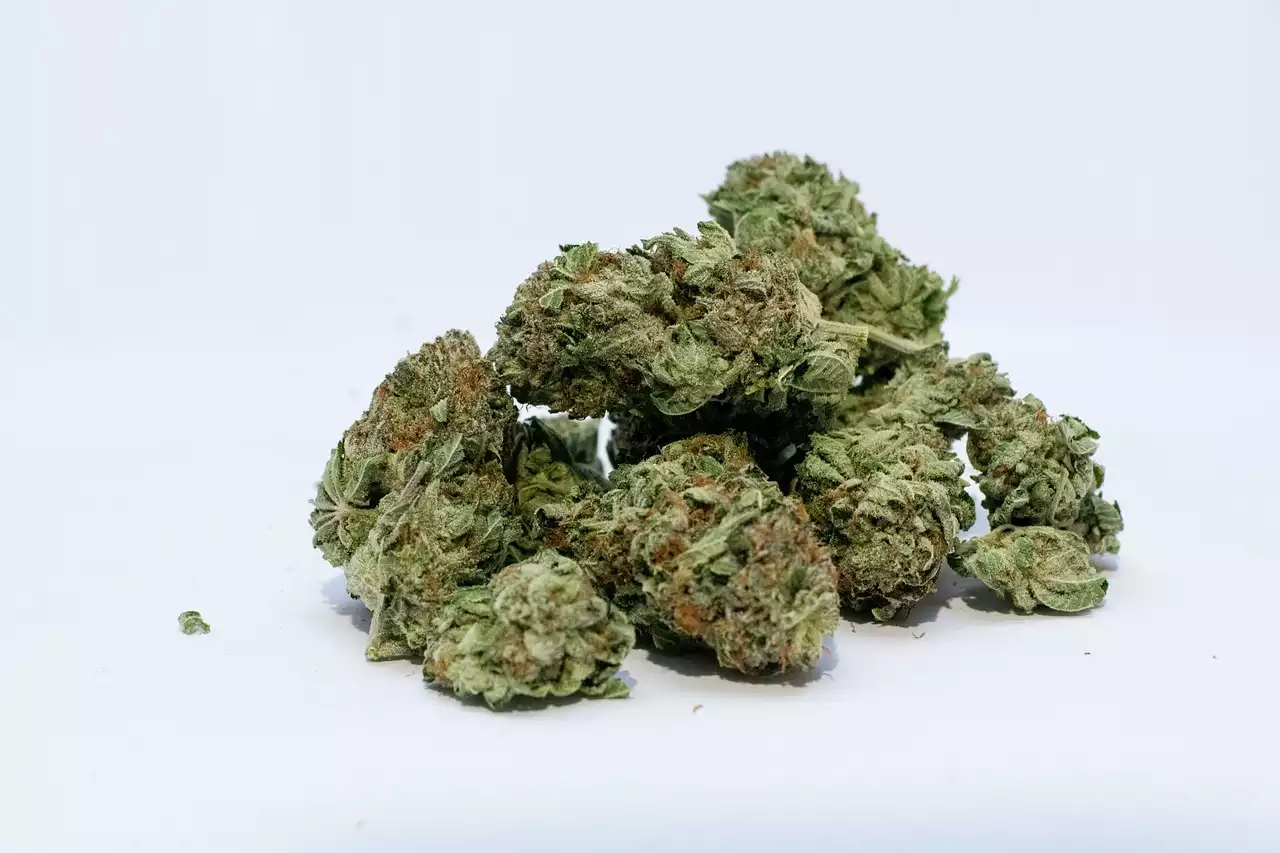What is THC Oil?
THC oil, also known as cannabis oil or marijuana oil, is a concentrated form of tetrahydrocannabinol (THC) extracted from the cannabis plant. It is commonly used for its potential therapeutic effects and is available in various forms, including tinctures, capsules, and vape cartridges. THC oil is known for its psychoactive properties, which can induce a feeling of euphoria or "high" when consumed.
How does THC Oil Work?
THC oil works by interacting with the body's endocannabinoid system (ECS). The ECS is a complex network of receptors and neurotransmitters that help regulate various physiological processes, including mood, pain perception, and appetite. When THC enters the body, it binds to cannabinoid receptors, primarily CB1 receptors found in the brain and central nervous system. This interaction leads to the release of neurotransmitters, resulting in the various effects associated with THC oil consumption.
Benefits of THC Oil
THC oil has been studied for its potential therapeutic benefits in managing a wide range of health conditions. Here are some of the key benefits associated with THC oil:
1. Pain Relief
One of the most well-known benefits of THC oil is its analgesic properties. THC interacts with the CB1 receptors in the brain and spinal cord, reducing the perception of pain. This makes THC oil a popular choice for individuals dealing with chronic pain conditions such as arthritis, multiple sclerosis, and fibromyalgia.
2. Relief from Anxiety and Depression
THC oil has shown promise in reducing anxiety and depression symptoms. The interaction between THC and the endocannabinoid system can help regulate mood and promote feelings of relaxation and well-being. However, it's important to note that THC's psychoactive effects may not be suitable for everyone, and some individuals may experience increased anxiety or paranoia with higher doses.
3. Sleep Aid
Many individuals struggling with sleep disorders, such as insomnia, have found relief with THC oil. THC's relaxing effects can help promote a sense of calmness and induce sleep. It's important to find the right dosage and method of consumption to achieve the desired sleep benefits without experiencing excessive sedation the next day.
4. Appetite Stimulation
THC oil is known for its ability to stimulate appetite, which can be particularly beneficial for individuals undergoing chemotherapy or dealing with conditions that cause appetite loss. THC activates the CB1 receptors in the brain, increasing hunger and promoting food intake.
5. Neuroprotective Properties
Research suggests that THC oil may have neuroprotective properties, meaning it could help protect the brain from damage and promote brain health. Studies have shown potential benefits in conditions such as Alzheimer's disease, Parkinson's disease, and traumatic brain injury. However, more research is needed to fully understand the extent of these benefits.
Potential Side Effects of THC Oil
While the benefits of THC oil are remarkable, it's crucial to understand and be aware of the potential side effects. These can include:
1. Dry Mouth
Dry mouth, also known as cottonmouth, is a common side effect of THC oil consumption. THC can reduce saliva production, leading to a dry and sticky sensation in the mouth. Staying hydrated and chewing gum can help alleviate this discomfort.
2. Drowsiness
THC oil can cause drowsiness and sedation, especially when consumed in higher doses. It's important to avoid operating heavy machinery or engaging in activities that require focus and alertness until the effects wear off.
3. Impaired Memory and Cognitive Function
THC can temporarily impair short-term memory and cognitive function, making it difficult to concentrate or recall information. These effects are usually temporary and subside once the THC is metabolized by the body.
4. Increased Heart Rate
THC oil can cause an increase in heart rate, which may be concerning for individuals with pre-existing heart conditions. It's important to monitor heart rate and consult with a healthcare professional if you have any concerns.
5. Psychiatric Effects
In some individuals, high doses of THC oil can lead to anxiety, paranoia, or hallucinations. These effects are more likely to occur in individuals with a history of mental health conditions or those who are prone to anxiety or paranoia.
It's important to use THC oil responsibly and consult with a healthcare professional to determine the right dosage and method of consumption based on individual needs and health conditions.
Different Methods of Consuming THC Oil
THC oil can be consumed in various ways, each offering different onset times and durations of effects. Here are some common methods of consuming THC oil:
1. Sublingual Administration
Sublingual administration involves placing a few drops of THC oil under the tongue and holding it there for a minute or two before swallowing. This method allows for rapid absorption through the blood vessels under the tongue, resulting in quicker onset of effects.
2. Inhalation
Inhalation methods, such as vaping or smoking THC oil, provide fast-acting effects. When inhaled, THC enters the bloodstream through the lungs, reaching the brain and producing immediate effects. However, it's important to note that inhalation can irritate the respiratory system and may not be suitable for individuals with respiratory conditions.
3. Oral Ingestion
THC oil can be consumed orally by adding it to food or beverages, or by using THC-infused edibles. Oral ingestion results in slower onset of effects, as the THC needs to be metabolized by the liver before reaching the bloodstream. The effects can be longer-lasting compared to other methods of consumption.
4. Topical Application
THC oil can also be applied topically in the form of creams, lotions, or balms. When applied to the skin, THC does not reach the bloodstream but interacts with cannabinoid receptors in the skin, providing localized relief for pain or inflammation.
Dosage and Safety Considerations
Determining the right dosage of THC oil is crucial to ensure safe and effective use. The appropriate dosage can vary depending on factors such as individual tolerance, desired effects, and the method of consumption. It's recommended to start with a low dose and gradually increase if necessary.
It's important to note that THC oil can have different concentrations of THC, and it's essential to understand the potency of the product being used. Reading product labels and consulting with a healthcare professional can help determine the appropriate dosage and ensure safe consumption.
Legal Status of THC Oil
The legal status of THC oil varies depending on the country and jurisdiction. In some places, THC oil is legal for both medical and recreational use, while in others, it may be strictly regulated or illegal. It's important to familiarize yourself with the laws and regulations in your area before purchasing or using THC oil.
How to Choose High-Quality THC Oil Products
With the growing popularity of THC oil, it's crucial to choose high-quality products that meet safety and quality standards. Here are some tips for selecting reliable THC oil products:
1. Research Brands and Manufacturers
Do thorough research on brands and manufacturers to ensure they have a good reputation and follow industry standards. Look for companies that provide third-party lab testing results to verify the potency and purity of their products.
2. Read Product Labels
Carefully read product labels to understand the concentration of THC and other ingredients. Look for products that provide clear and accurate information about the THC content and dosing recommendations.
3. Consider Extraction Methods
Different extraction methods can affect the quality and purity of THC oil. Look for products that use clean and safe extraction methods, such as CO2 extraction, which ensures the removal of harmful solvents and contaminants.
4. Check for Certifications
Look for products that have undergone third-party testing and have certifications to ensure quality and safety. Certifications such as Good Manufacturing Practices (GMP) and ISO certifications can provide reassurance of a product's quality.
Tips for Using THC Oil Effectively
To make the most of your THC oil experience, here are some tips to keep in mind:
1. Start Low and Go Slow
Start with a low dosage and gradually increase if needed. This allows you to gauge your tolerance and find the right dosage for your desired effects.
2. Keep Hydrated
Stay hydrated when consuming THC oil to counteract the common side effect of dry mouth. Drink plenty of water throughout the day to maintain hydration.
3. Find the Right Method of Consumption
Experiment with different methods of consumption to find the one that suits you best. Everyone's body reacts differently, so it's important to find the method that provides the desired effects with minimal side effects.
4. Store Properly
Store THC oil products in a cool, dark place away from direct sunlight or heat. This helps maintain the potency and quality of the product.
Conclusion
THC oil has emerged as a powerful natural remedy with potential therapeutic benefits for a range of health conditions. From pain relief to anxiety management and sleep aid, THC oil offers a promising alternative to traditional medications. However, it's important to understand the potential side effects and use THC oil responsibly, consulting with a healthcare professional when necessary.
By learning about the different methods of consumption, dosage considerations, and choosing high-quality products, individuals can maximize the benefits and minimize the risks associated with THC oil. As the legal landscape continues to evolve, it's important to stay informed about the regulations in your area and make informed decisions regarding THC oil use.
So, whether you're seeking relief from chronic pain or looking to enhance your well-being, THC oil may hold the key to unlocking a natural and holistic approach to better health. Embrace the power of THC oil and discover its potential to transform your life.









